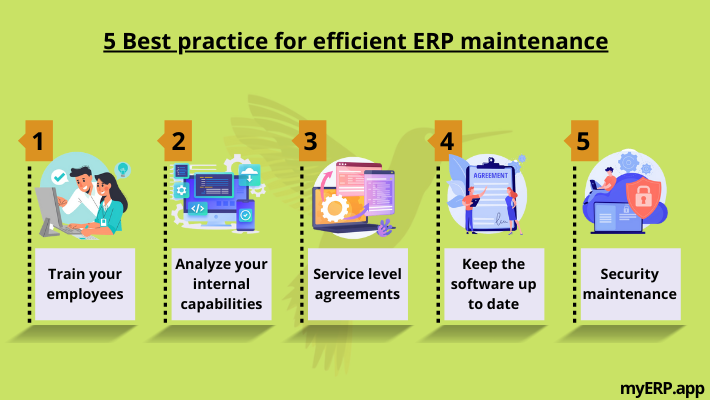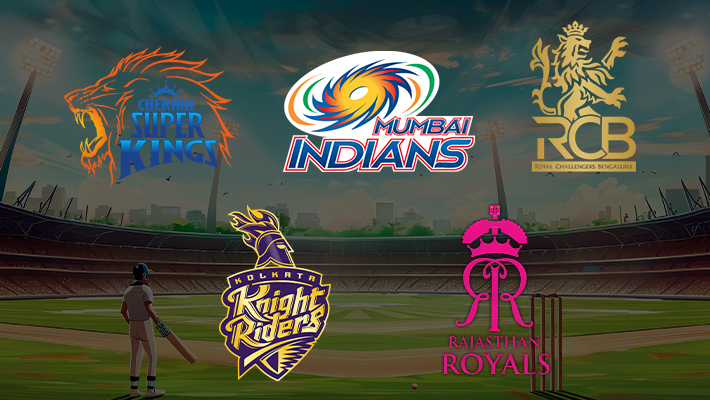
ERP(Enterprise Resource Management) has evolved so much that it is being used in every organization irrespective of its nature and size. ERP serves as the most powerful tool and a backbone to an organization. Each business goes through lots of research in finding the right software for their organization. Once chosen the next big challenge is to successfully implement the ERP system. For all these struggles the business sees significant growth in the long run. But what happens next ? Everyone talks about the difficulties in various phases of implementation. But it is equally important to have a plan for ERP maintenance as well. This helps you to sustain those enhancements and benefits the business experienced.
A lot of money is being invested in ERP software implementation and training. The ERP systems collect, track and report all the critical business data. After a certain period, the whole company becomes so reliable on ERP for their day to day activities. Hence when an issue arises in such a valuable software tool, the entire operations might be affected. From finance till production, there is more crucial data that can’t be risked. Here comes the process of ERP maintenance that ensures the software runs smoothly across the organization and throughout the year as well. Let us discuss some of the best practices followed to maintain the ERP.
Train your employees :
Not only the implementation is a challenging part but how well the employees have been trained reflects in the smooth running of the process. Every employee should be aware of the software tool in which they are working. The knowledge level must be enhanced regularly to avoid unnecessary issues or misunderstanding. Each user or employee must be able to maximum utilize the tool efficiently. The other method is cross functional training. By this method, even in the circumstances where a certain employee is not present, another person would be able to work on the tool. This enables uninterrupted functioning of the process.
ERP Fact 1 : Market Watch reports, the ERP industry is expected to generate a revenue of around 47 billion during the forecast period of 2017-2022. In terms of CAGR, the market is estimated to tread forward at the rate of 7%.
Analyze your internal capabilities :
Some organizations have their own IT departments and can handle all the ERP maintenance duties. But some do not have one. Hence if you don’t have ERP specialists in your company it is better to hire some third party consultants or the ERP vendor itself. Considering a team of experts who are specialized in ERP solutions are greatly beneficial to the business. Another option is to opt for an annual maintenance service provided by the vendors.
ERP Fact 2 : 22% of the companies that opt for cloud-based ERP solutions appreciate cost savings as a result.
Service level agreements :
Service level agreements are those terms and conditions set by service providers/vendors at the time of buying the software. So check out if the vendors are quick to respond to any issues arising after the implementation. The post support should be reliable for a company paving the way for a healthy running of the business operations. Hence read the T&C’s completely including the price they charge for the AMC’s and what are all the services included.
ERP Fact 3 : 89% of respondents expect that the number of cyber-attacks against ERP systems will grow in the next 12 months by 33%.
Keep the software up to date :
Software always evolves and comes up with new additional features and improvements. So one should know which version they are currently using and what are the latest updates. Vendors provide regular ERP upgrades to address the bugs, additional functionality to enhance the process, improves the navigation, and changes certain looks of the software for a more comfortable working environment. Hence it is essential to keep the systems up to date and supported.
ERP Fact 4 : Cloud technology ERP systems experienced an application growth rate of about 20.7% in 2018
Security maintenance :
Security is the most crucial part of an ERP system. One should know all the aspects of security protocols that are prone to cyber attacks. An outdated ERP should be completely avoided. Choose a software that can be easily updated with the latest security protocols. Keep appropriate measures by performing regular backups and system restoration.
ERP Fact 5 : A survey on ERP users was conducted globally that showed 64% of the businesses use SaaS, 21% percent use Cloud ERP, and the remaining 15% use on-premises.
Conclusion :
ERP systems have become so reliable in every business. ERP tracks each and every activity in a day to day routine and without the software there can’t be a single task happening. As the whole business data is being stored in the ERP, it is very essential for a company to give importance to ERP maintenance on a regular basis.







